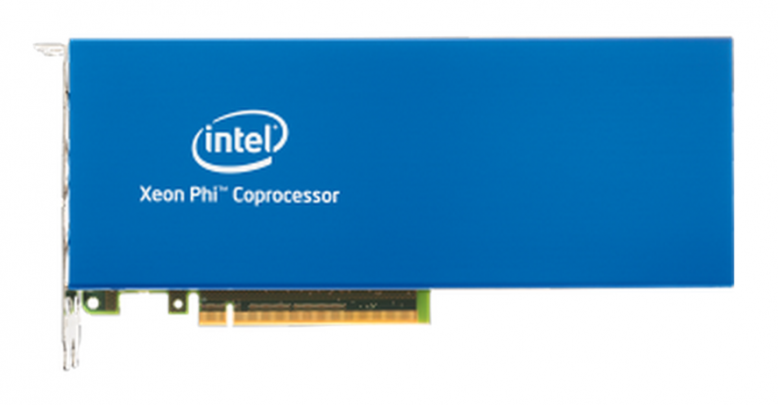STAC Report: STAC-A2 on System with Dual Xeon Phi Cards

33% faster in warm runs of baseline Greeks than the fastest non-Intel based solution
3 November 2015
Today STAC released audited STAC-A2 Benchmark results for a system using two Xeon Phi cards along side two Haswell CPUs.
This solution used a new version of the Intel STAC Pack (benchmark implementation code) that utilizes Flow Graph technology in Intel Threading Building Blocks, including its heterogeneous capabilities. The hardware was a Supermicro Superserver SYS-1028GR-TR using 2 x Intel Xeon Phi 7120P Co-Processor cards with 2 x Intel Xeon E5-2697 v3 (Haswell EP) processors @ 2.60 GHz, and 256GB RAM.
In warm runs of the baseline Greeks benchmark (STAC-A2.β2.GREEKS.TIME.WARM), this solution was 33% faster than the fastest publicly reported system using a non-Intel architecture (NVDA141116). It was also 27% faster than a 4-socket Haswell system (INTC150811). Comparing how this solution performed when using just one Xeon Phi with both Haswell processors to that of a previous solution that had one Xeon Phi and two Haswell processors, this SUT was 38% faster despite the Haswells in the present solution having only 13% faster clockspeeds.
STAC-A2 is the user-developed benchmark standard based on financial market risk analysis. Designed by quants and technologists from some of the world's largest banks, STAC-A2 reports the performance, scaling, quality, and resource efficiency of any technology stack that is able to handle the workload (Monte Carlo estimation of Heston-based Greeks for a path-dependent, multi-asset option with early exercise).
The report is available at the link above. Premium subscribers also have access to the code used in this project and the micro-detailed configuration information for the solution. To learn about subscription options, please contact us.
About STAC News
Read the latest about research, events, and other important news from STAC.
